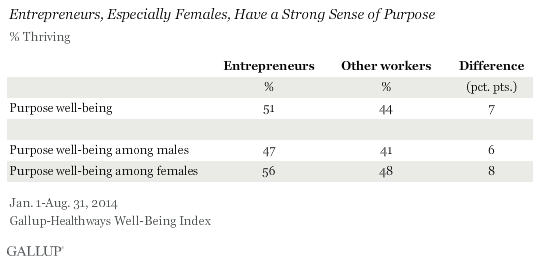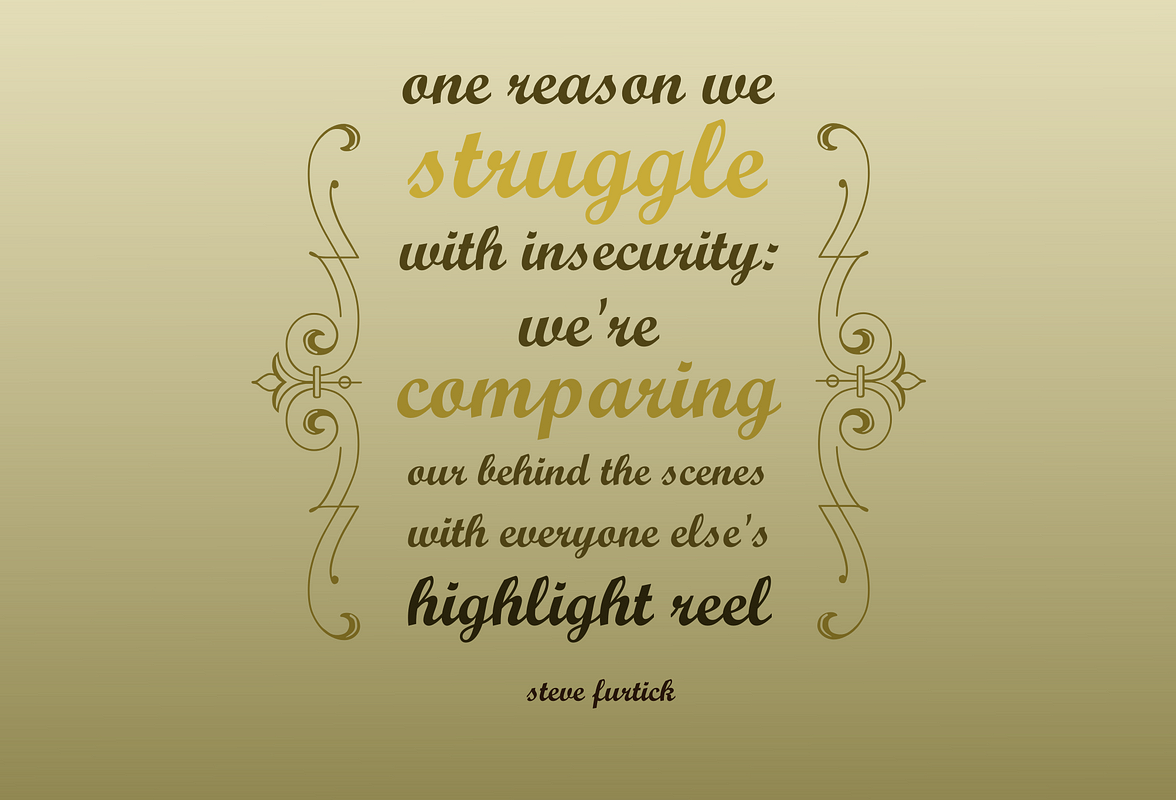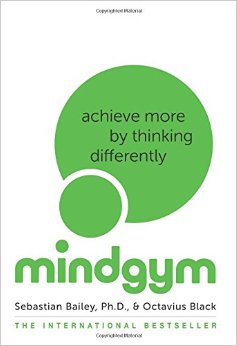4. Do One Thing You Dream of Doing That Others Disdain or RidiculeRead the full list in the Muse.
Wednesday, December 31, 2014
5 Big Career Risks You Will Regret Not Taking
Number four is my favorite:
The Basics of Business Body Language (Infographic)
Make your point loud and clear without saying a word. Check out more in Inc.
Why women leave tech: It's the culture, not because 'math is hard'
Stories from 716 women who left tech show that the industry’s culture is the primary culprit, not any issues related to science education.
Check out the article in Fortune.
Check out the article in Fortune.
Tuesday, December 30, 2014
Against Invulnerability
Read more in the Stone at the NYT. The Stone features the writing of contemporary philosophers and other thinkers on issues both timely and timeless
Thanks, +Alessia Bhargava
Thanks, +Alessia Bhargava
Sunday, December 28, 2014
How To Make Difficult Conversations Easy: 7 Steps From A Clinical Psychologist
Quick notes:
Read more in Barking Up the Wrong Tree.
- Keep calm. Don’t turn it into Godzilla vs. Rodan. (Samurai secrets of staying calm are here.)
- Treat’em like a child. You can’t talk them out of emotional outbursts and getting angry over it does nothing good.
- Say “Please speak more slowly. I’d like to help.” Slow it down. Don’t come off like you’re fighting back.
- Ask “What would you like me to do?” You gotta make’em start thinking in order turn off the rage machine.
- Don’t make statements. Ask questions. Explaining is veiled dominance. Questions get them thinking.
- Start sentences with “I’d like…” not “You are…” If you start with “I” it’s hard to be seen as attacking.
- Let them have the last word. Don’t let your ego blow it at the last minute.
Read more in Barking Up the Wrong Tree.
Saturday, December 27, 2014
Olympic Moms: The Rise of Mothers in Elite Sports
"More female athletes are finding that motherhood is not a career-ender." Read more in NBC.
Friday, December 26, 2014
How Laziness Propagates Lies
My favorite excerpt:
Several years ago, I was talking with a friend who was thinking of going into the field of investment banking as an intern and then an analyst. His ultimate dream was to become a social entrepreneur bringing millions of people out of poverty, but his college career office, parents, and peer group were convincing him that a high-paying Wall Street job would give him the credibility, skills, capital, and network to change the world (I was skeptical).
He then told me about a really successful and charismatic investment banker who had given a really convincing pitch for why my friend should become an investment banker. One day it clicked for me: “Of course this successful investment banker would make the case for why it’s smart to be an investment banker — he is projecting to validate and protect his ego! Why in the world would he tell someone not to become an investment banker? That would only make him second-guess his use of the last 15 years and face elements of his own self-deception.”
There’s nothing wrong with being an investment banker—some people really enjoy it, and investment banks do valuable work for the economy—but in the case of this investment banker (who projected his experiences onto my friend without weighing any other options or asking my friend what his ultimate goals were), he was projecting. I later heard from another friend that this very investment banker turned out to be incredibly unhappy and couldn’t figure out why. His unhappiness only confirms that his projection indeed came from a place of self-deception…but even if he loved his life, an acknowledgement of difference in contexts would have made his case far more compelling and effective. In any case, my friend did not become an investment banker. If the investment bankers at leastRead +Ted Gonder's post in Medium.
Does pessimism soften the blow of bad news?
Yes, but it's not worth it. Read more in Barking Up the Wrong Tree.
Dear Future Homejoy Engineer
Read the letter in Hacker News. Hope to be a leader like this some day.
Thursday, December 25, 2014
Religion without God
"Even atheists find that ritual helps them make sense of the world." Read more in the NYT.
In Naples, Gift of Coffee to Strangers Never Seen
Love this idea of "suspended coffee." Read more in the NYT.
The state of consumer fintech
Tanay Jaipuria of McKinsey & Company identified three main ways technology can impact consumer finance and breaks them down into categories. Read more in Medium.
Tuesday, December 23, 2014
Is Trauma Genetic? The Science of Suffering
Kids are inheriting their parents' trauma. Can science stop it? An excerpt:
Thanks, +Alessia Bhargava
In early papers Yehuda produced on Holocaust offspring, she discovered that the children of PTSD-stricken mothers were diagnosed with PTSD three times as often as members of control groups; children of fathers or mothers with PTSD suffered three to four times as much depression and anxiety, and engaged more in substance abuse. She would go on to discover that children of mothers of survivors had less cortisol than control subjects and that the same was true of infants whose mothers had been pregnant and near the Twin Towers on 9/11.Read more in the New Republic.
Thanks, +Alessia Bhargava
A Brand New World In Which Men Ruled
Instead of narrowing gender gaps, the technology industry created vast new ones for Stanford University’s pioneering class of 1994. Check out the New York Times interactive.
Monday, December 22, 2014
Haters and Critics: How to Deal with People Judging You and Your Work
Loved this post. An excerpt:
It doesn’t matter how you choose to live your life — whether you build a business or work a corporate job; have children or choose not to have children; travel the world or live in the same town all of your life; go to the gym 5 times a week or sit on the couch every night — whatever you do, someone will judge you for it.Read more in James Clear.
Sunday, December 21, 2014
Why sleep is important and what happens when you don't get enough
An excerpt on amount of sleep needed:
In general, most healthy adults are built for 16 hours of wakefulness and need an average of eight hours of sleep a night. However, some individuals are able to function without sleepiness or drowsiness after as little as six hours of sleep. Others can't perform at their peak unless they've slept ten hours. And, contrary to common myth, the need for sleep doesn't decline with age but the ability to sleep for six to eight hours at one time may be reduced.Read more in the APA.
What Happened When Marissa Mayer Tried to Be Steve Jobs
A longer piece, but a thoughtful reflection of what it takes to run a big tech company in Silicon Valley. Read more in the NYT.
Thanks, +Brandon Kearse
Thanks, +Brandon Kearse
Saturday, December 20, 2014
Obama Just Made History by Ignoring Men for an Entire Press Conference
8 Reporters Who Asked Obama A Question Today: pic.twitter.com/Mt5EQRrbn4
— Chris Geidner (@chrisgeidner) December 19, 2014Read more in Policy.Mic.
Friday, December 19, 2014
Thursday, December 18, 2014
Wednesday, December 17, 2014
Paid Maternity Leave Is Good for Business
When we increased paid leave at Google to 18 weeks, the rate at which new mothers left fell by 50%. Read more in the WSJ.
San Francisco Startup Using Fake Tinder Profile To Try To Catch Serial Burglar
"Screen image of a fake Tinder profile depicting a woman who allegedly has burglarized San Francisco startup BuildZoom several times." Read more in CBS San Francisco.
Thanks, Tom
Thanks, Tom
Tuesday, December 16, 2014
Understanding “New Power”
A couple favorite quotes:
Read more in HBR. Thanks, +Elaine Choi
- "Indeed, crowdfunding puts on steroids the human tendency to favor the immediate, visceral, and emotional rather than the strategic, impactful, or long-term."
- "As new power models become integrated into the daily lives of people and the operating systems of communities and societies, a new set of values and beliefs is being forged. Power is not just flowing differently; people are feeling and thinking differently about it. A teenager with her own YouTube channel engages as a content creator rather than as a passive recipient of someone else’s ideas. A borrower on the peer-to-peer finance platform Lending Club can disintermediate that oldest of old power institutions, the bank. A Lyft user experiences consumption as a kind of sharing and subtly shifts his view of asset ownership. These feedback loops—or maybe we should call them “feed-in” loops, given that they’re based on participation—make visible the payoffs of peer-based collective action and endow people with a sense of power."
Read more in HBR. Thanks, +Elaine Choi
What You Learn in Your 40s
Favorite excerpt:
•There are no grown-ups. We suspect this when we are younger, but can confirm it only once we are the ones writing books and attending parent-teacher conferences. Everyone is winging it, some just do it more confidently.Read more in the NYT.
Saturday, December 13, 2014
Duke Beats Out Harvard, Yale as Top College for an Economics Degree
Wahoo! Go Duke.
Duke has bested its competitors to claim the No. 1 spot in a ranking of best colleges for an economics degree in the United States. Read more in Duke Econ.
Duke has bested its competitors to claim the No. 1 spot in a ranking of best colleges for an economics degree in the United States. Read more in Duke Econ.
How can you perfect a 4,000-year-old eating utensil?
Chopsticks get a make-over. Read more in Co-Design.
Friday, December 12, 2014
Thursday, December 11, 2014
Senator John McCain Delivers Speech Condemning CIA Torture Report
"This is how a POW feels about torture. In a speech from the Senate floor, John McCain broke with his Republican colleagues to commend the Senate's CIA report, relying on his own experience in Vietnam."
Read more in the Atlantic. It's a short read, and worth it.
Read more in the Atlantic. It's a short read, and worth it.
Stan Richards's Unique Management Style
An in-depth look at how one man built the nation's largest independent advertising agency on one principle: Creativity doesn't need a muse. It needs a drill sergeant.
Read more in Inc.
Read more in Inc.
Columbia MBA Students Made A Parody Of “All About That Bass”
“Getting called bitch means I’m doing something right.” Possibly NSFW.
Read more in Buzzfeed. Thanks, +Samantha Pearlman
Wednesday, December 10, 2014
Tuesday, December 9, 2014
The Colbert Report - President Obama Delivers The Decree
President Barack Obama delivers a special edition of The Word, proving that he is perfectly capable of doing Stephen's job.
Laughed so hard.
The Problem With International Development—and a Plan to Fix It
Stop Trying to Save the World --big ideas are destroying international development.
Read more in the New Republic. Thanks, Ted
Read more in the New Republic. Thanks, Ted
When Talking About Bias Backfires
Adam Grant and Sheryl Sandberg on Discrimination at Work. Read more in the NYT.
This is the 1st in a four part series.
This is the 1st in a four part series.
Blood, Simpler. One woman’s drive to upend medical testing.
"She no longer devotes time to novels or friends, doesn't date, doesn't own a television and hasn't taken a vacation in ten years. Her refrigerator is all but empty, as she eats most of her meals at the office," New Yorker's Ken Auletta writes in a profile about Elizabeth Holmes. Holmes is the founder of Theranos, a blood diagnostics firm that now is valued at more than $9 billion.
Monday, December 8, 2014
The Dark Power of Fraternities
A yearlong investigation of Greek houses reveals their endemic, lurid, and sometimes tragic problems—and a sophisticated system for shifting the blame. Read more in the Atlantic.
Thanks, Tom
Thanks, Tom
13 Smooshy Cats On Glass
Trying to not freak out. More pics on the Dodo.
PS -- This is our 3,000th post! Fitting for the 8 year old blog.
PS -- This is our 3,000th post! Fitting for the 8 year old blog.
Saturday, December 6, 2014
Tuesday, December 2, 2014
How Budweiser Lost Millennials
The mass-market brewer wants to regain popularity with younger people. But will a new ad campaign be enough?
Read more in the Atlantic.
Read more in the Atlantic.
Monday, December 1, 2014
The self is moral
We tend to think that our memories determine our identity, but it’s moral character that really makes us who we are.
Read the long-form article in Aeon.
Read the long-form article in Aeon.
The Very First Startup Founder You Need to Invest in is You.
Read Mark Suster's post in Both Sides of the Table. One of the best things I've read this month.
Sunday, November 30, 2014
The Powerful Predictor Behind Successful Relationships
When does a broken relationship start to go wrong? It's all about how someone responds to a "bid." Read more in Farnam Street.
Article reminds me of an Atlantic post from earlier this summer that cited the same study. Both are remarkably actionable, and wonderful to bring to day-to-day life.
Thanks, +Zuhair Khan
Article reminds me of an Atlantic post from earlier this summer that cited the same study. Both are remarkably actionable, and wonderful to bring to day-to-day life.
Thanks, +Zuhair Khan
Blogging--It's Good for You
The therapeutic value of blogging becomes a focus of study. Read more in Scientific American.
Thanks, +Inoh Choe
Thanks, +Inoh Choe
Science Shows Something Surprising About People Who Love to Write
Read more in Mic. And if you want to start the writing habit, check out 750 Words.
Thanks, +Inoh Choe
Thanks, +Inoh Choe
Subscribe to:
Posts (Atom)
Why Women Aren’t C.E.O.s, According to Women Who Almost Were
"It’s not a pipeline problem. It’s about loneliness, competition and deeply rooted barriers." Read more in the NYT .

-
Ever wonder who goes to the Gossip Girl set to see a glimpse of the actors in NYC? Look above at the picture. The NY Times also included som...
-
"It’s not a pipeline problem. It’s about loneliness, competition and deeply rooted barriers." Read more in the NYT .














































